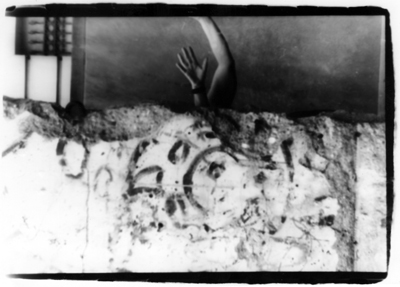All Nonfiction
- Bullying
- Books
- Academic
- Author Interviews
- Celebrity interviews
- College Articles
- College Essays
- Educator of the Year
- Heroes
- Interviews
- Memoir
- Personal Experience
- Sports
- Travel & Culture
All Opinions
- Bullying
- Current Events / Politics
- Discrimination
- Drugs / Alcohol / Smoking
- Entertainment / Celebrities
- Environment
- Love / Relationships
- Movies / Music / TV
- Pop Culture / Trends
- School / College
- Social Issues / Civics
- Spirituality / Religion
- Sports / Hobbies
All Hot Topics
- Bullying
- Community Service
- Environment
- Health
- Letters to the Editor
- Pride & Prejudice
- What Matters
- Back
Summer Guide
- Program Links
- Program Reviews
- Back
College Guide
- College Links
- College Reviews
- College Essays
- College Articles
- Back
2014: The Year in Review
The following work is entirely fictional. Any resemblance to real persons or events is entirely deliberate, and ought to be obvious given that their real names are used.
The sun’s harsh glare reflected on James Clapper’s glistening bald pate. A bead of sweat travelled down from his forehead, wrinkled with concern, to around his eyes, marked with crow’s feet, to his chin, trembling with the hint of worry and anticipation. The room around him was bustling with activity as staffers rushed from general to general, from analyst to analyst, all bristling with impatience. A messenger rushed through the door, his demeanor frazzled, his hair crumpled, his speech filled with starts and stumbles, his eyes filled with a near manic excitement.
“Sir! Sir!” he exclaimed, “they got Assange!”
The room filled with palpable relief and happiness.
Assange had been a threat, an interminable foe, for four years now. WikiLeaks in 2010 was an unprecedented disaster on the foreign front as cables were published showing the true extent of the United States’ actions in international affairs. The documents published in July, though, were a catastrophe, a fiasco in a magnitude unto its own, as it showed the inner workings of the government under the Obama administration.
The published papers showed a thrilling, chaotic, and truly depressing amount of incompetence, internal subterfuge, and illegality. While the cabinet seemed too divided by political intrigue and arrogance to do much of anything and Congress to opinionated and obstructionist to accomplish their goals, the NSA and the CIA were hard at work, collected vast amounts of personal information on every citizen in the country.
The most shocking revelation, though, was the use to which this data was put. It was as though the Church Committee never happened and Hoover was still the king of Washington, as officials blackmailed and threatened elected public servants to get funding, to get their way.
Clapper had to act quickly. As Director of National Security, he was culpable for these abuses. He and Chuck Hagel worked swiftly to contain discontent, distracting the citizens of this country with a shocking dance by Justin Timberlake and Demi Lovato (how far have Disney stars fallen?) while they solidified control.
As it turns out, pop culture was an experiment. It began with Prince, working to see how easily the American public could be distracted. Beyonce confirmed many of their previous results, and Lady Gaga was a repetition of their experiments. Miley Cyrus, though, was took the cake. Who cared that the US was spying on Germany, Brazil, and more, when we could debate endlessly the pros and cons of stars and their dances.
Now, though, Clapper spoke with the messenger – “The strike worked?” he asked, filled with hope for the future of his country.
“Yes”
Assange, since 2010, had been hiding in London’s Ecuadorian embassy. It was long rumored that authorities would arrest and extradite him to the US once he inevitably exited.
Clapper, though, thought that that was too long to wait. Four years had passed and he was at his game again, destroying US credibility and power throughout the entire world. He had passed the order down to his CIA director, William Brennan, to get rid of the man through any means possible.
To Brennan, though, drone strike aficionado, this was an easy task.
“Collateral damage?” questioned Clapper, with almost a breezy air.
“Only enemy insurgents. They were harboring the fugitive in their city. “
When one assumes that everyone is an enemy, there is no collateral damage.
Clapper took control because he saw weakness in everybody else. The refusal to take action was inexcusable. The concern for privacy, the push for democracy, was misguided. He took actions to protect the state, which our elected leaders were too timid, too cowardly to take.
He had disposed of the government, begun a spying program on the American citizen, and had just accomplished a drone strike in London, but perhaps the most surprising part of all – not one single person cared.

Similar Articles
JOIN THE DISCUSSION
This article has 0 comments.
